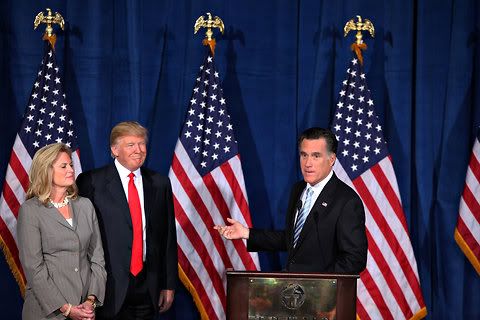New York State Attorney General Eric Schneiderman filed suit today in New York State Supreme Court in Brooklyn charging them with deceptive and fraudulent practices that harmed homeowners and undermined the judicial foreclosure process. From Mr. Schneiderman’s office:
NEW YORK – Attorney General Eric T. Schneiderman today filed a lawsuit against several of the nation’s largest banks charging that the creation and use of a private national mortgage electronic registry system known as MERS has resulted in a wide range of deceptive and fraudulent foreclosure filings in New York state and federal courts, harming homeowners and undermining the integrity of the judicial foreclosure process. The lawsuit asserts that employees and agents of Bank of America, J.P. Morgan Chase, and Wells Fargo, acting as “MERS certifying officers,” have repeatedly submitted court documents containing false and misleading information that made it appear that the foreclosing party had the authority to bring a case when in fact it may not have. The lawsuit names JPMorgan Chase Bank, N.A., Bank of America, N.A., Wells Fargo Bank, N.A., as well as Virginia-based MERSCORP, Inc. and its subsidiary, Mortgage Electronic Registration Systems, Inc.
The lawsuit further asserts that the MERS System has effectively eliminated homeowners’ and the public’s ability to track property transfers through the traditional public records system. Instead, this information is now stored only in a private database – which is plagued with inaccuracies and errors – over which MERS and its financial institution members exercise sole control. Additional defendants include BAC Home Loans Servicing, LP, Chase Home Finance LLC, EMC Mortgage Corporation, and Wells Fargo Home Mortgage, Inc.
“The banks created the MERS system as an end-run around the property recording system, to facilitate the rapid securitization and sale of mortgages. Once the mortgages went sour, these same banks brought foreclosure proceedings en masse based on deceptive and fraudulent court submissions, seeking to take homes away from people with little regard for basic legal requirements or the rule of law,” said Attorney General Schneiderman. “Our action demonstrates that there is one set of rules for all – no matter how big or powerful the institution may be – and that those rules will be enforced vigorously. Only through real accountability for the illegal and deceptive conduct in the foreclosure crisis will there be justice for New York’s homeowners.” [..]
The lawsuit specifically charges that the defendants have engaged in the following fraudulent and deceptive practices:
MERS has filed over 13,000 foreclosure actions against New York homeowners listing itself as the plaintiff, but in many instances, MERS lacked the legal authority to foreclose and did not own or hold the promissory note, despite saying otherwise in court submissions.
MERS certifying officers, including employees and agents of JPMorgan Chase, Bank of America, and Wells Fargo, have repeatedly executed and submitted in court legal documents purporting to assign the mortgage and/or note to the foreclosing party. These documents contain numerous defects, including affirmative misrepresentations of fact, which render them false, deceptive, and/or invalid. These assignments were often automatically generated and “robosigned” by individuals who did not review the underlying property ownership records, confirm the documents’ accuracy, or even read the documents. These false and defective assignments often masked gaps in the chain of title and the foreclosing party’s inability to establish its authority to foreclose, and as a result have misled homeowners and the courts.
MERS’ indiscriminate use of non-employee “certifying officers” to execute vital legal documents has confused, misled, and deceived homeowners and the courts and made it difficult to ascertain whether a party actually has the right to foreclose. MERS certifying officers have regularly executed and submitted in court mortgage assignments and other legal documents on behalf of MERS without disclosing that they are not MERS employees, but instead are employed by other entities, such as the mortgage servicer filing the case or its counsel. The signature line just indicates that the individual is an “Assistant Secretary,” “Vice President,” or other officer of MERS. Indeed, these documents often purport to assign the mortgage to the certifying officer’s own employer. Moreover, as a result of the defendants’ failure to track the designation of certifying officers and the scope of their authority to act, individuals have executed legal documents on behalf of MERS, such as mortgage assignments and loan modifications, when they were either not designated as a MERS certifying officer at the time or were not authorized to execute documents on behalf of MERS with respect to the subject loan.
MERS and its members have deceived and misled borrowers about the importance and ramifications of MERS’ role with respect to their loan by providing inadequate disclosures.
The MERS System is riddled with inaccuracies which make it difficult to verify the chain of title for a loan or the current note-holder, and creates confusion among stakeholders who rely on the information. In addition, as a result of these inaccuracies, MERS has filed mortgage satisfactions against the wrong property. The lawsuit seeks a declaration that the alleged practices violate the law, as well as injunctive relief, damages for harmed homeowners, and civil penalties. The lawsuit also seeks a court order requiring defendants to take all actions necessary to cure any title defects and clear any improper liens resulting from their fraudulent and deceptive acts and practices.
Schneiderman has still not signed onto the Federal agreement and the final terms of that agreement are still pretty vague as no one has actually seen the final document but they have been given until February 6 to sign on to it. Precisely how this suit, or the one file this week by Illinois AG against Nationwide, will effect or be effected by that agreement is anyone’s guess. But there is a lot of speculation. Happy Friday news dump


Recent Comments